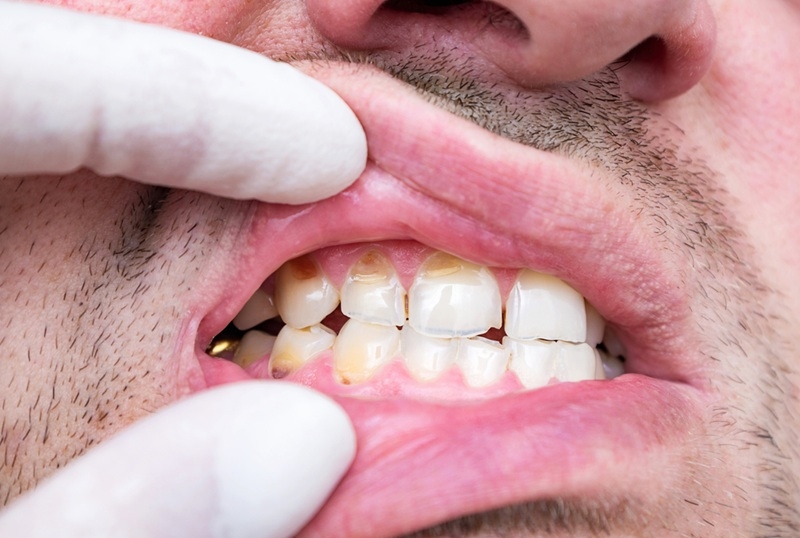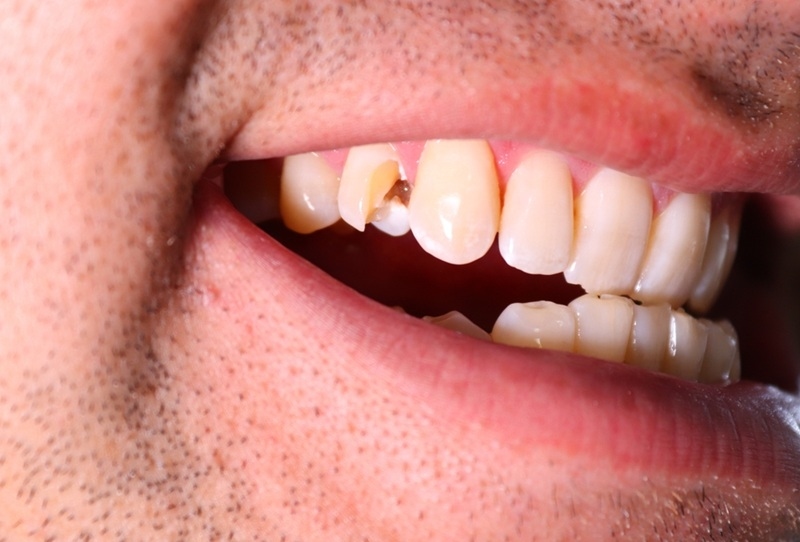Enamel Repair Toothpaste to Rebuild Damaged Tooth Enamel

One of the greatest threats to overall health is tooth health, yet millions of Americans have cracked or weakened tooth enamel. Enamel, the hard surface of our teeth, is our mouth's protection against cavities, sensitivity, and tooth decay. If the enamel becomes damaged, it will never repair itself naturally, so enamel repair toothpaste is an excellent product for someone who wants to have strong, healthy teeth.
Here, we will explain how enamel repair toothpaste works, its benefits, and how it aids in enamel restoration, remineralization, and overall dental care.
What is Enamel and Why is it Important?
Enamel is the hard outer defensive covering of your teeth. It's present to shield the softer dentin and pulp inside your teeth from decay, acids, and wear. Healthy enamel keeps cavities away, reduces sensitivity, and maintains a white smile.
Unfortunately, enamel deteriorates because of a series of events:
- Acid foods and drinks: Citrus fruits and vegetables, colas, and coffee erode enamel over time.
- Poor oral health: Bacteria and plaque speed up the disintegration of the enamel.
- Bruxism: Grinding of teeth mechanically wears away enamel.
- Aging: Natural wear and tear over the course of years thins out the enamel.
Lost enamel is not replaced naturally. That is where enamel repair toothpaste comes in for enamel rebuilding to repair and protect your teeth.
How Enamel Repair Toothpaste Works
Toothpaste for enamel repair also comes with advanced repair content that acts to replace the lost minerals, seal the gaps within the enamel, and prevent the erosion from progressing. Whereas regular toothpaste, whose primary responsibilities are to clean and deodorize teeth, toothpaste for enamel repair acts on the micro-enamel architecture to repair enamel. This is how:
1. Remineralization
Remineralization is the restoration of vital minerals like phosphate and calcium to your tooth enamel. Enamel repair toothpaste contains active components that stimulate remineralization, which remineralizes softened spots in the weakened enamel caused by acid attack or abrasion. It can harden and strengthen enamel in the long run.
2. Enamel Strengthening
- Enamel fortification is the most important benefit of enamel repair toothpaste.
- Certain ingredients like fluoride, calcium phosphates, and nano-hydroxyapatite get incorporated into the enamel surface to build tooth structure.
- It makes teeth robust to day-to-day wear, acid attack, and sensitivity for a strong and healthy smile.
3. Enamel Restoration
Enamel is restored gradually by frequent use of a professional toothpaste. The restoration remedy hardens micro-cracks and demineralized areas and reinforces enamel gradually. This not only improves looks but also protects teeth from subsequent wear.
Main Ingredients in Enamel Repair Toothpaste

New enamel repair toothpaste has a combination of ingredients with synergistic actions to rebuild tooth enamel. Looking for the ingredients enables you to choose the best toothpaste for your teeth.
Fluoride
Fluoride is a proven mineral enabling remineralization. Fluoride is bonded with calcium and phosphate in the enamel to oppose acid attack and dental decay.
Nano-Hydroxyapatite
It's an enamel repair revolution. Nano-hydroxyapatite is a synthetic replica of the tooth's native mineral that hardens the enamel and closes up tiny cracks in the tooth's surface.
Calcium Phosphate
Calcium phosphate is also included in the repair formula to repair the enamel. It aids in remineralization, strengthens teeth to densify, and desensitizes by thickening worn-down enamel.
Potassium Nitrate
Potassium nitrate is typically added in order to reduce sensitivity, which is a common consequence of enamel loss. It does not repair enamel per se, but makes teeth stronger to withstand the period until enamel repair can occur.
Benefits of Enamel Repair Toothpaste
Enamel repair toothpaste, if applied daily, has some benefits to oral health.
- Hardening Weak Teeth: By remineralizing, enamel repair toothpaste hardens enamel and strengthens teeth so that they are less prone to being damaged any further.
- Reduces Tooth Sensitivity: Thin enamel reveals nerves in your teeth, making them sensitive to hot, cold, or sweet food. Enamel repair toothpaste halts by plugging microscopic pores in the enamel, alleviating pain.
- Halts Cavities: Repair formula minerals make teeth decay-proof by hardening the enamel surface, a shield against bad bacteria.
- Aesthetic Enhancement: Usual usage by restoring a smooth enamel surface, improving the appearance of the tooth, and increasing whiteness over time.
- Non-Invasive Enamel Restoration: Unlike dental procedures such as crowns or fillings, enamel repair toothpaste is a pain-free solution at home to repair the enamel.
Habits for Maximum Benefits
To achieve the best out of your enamel repair toothpaste, follow these steps:
- Brush Twice Daily: Gently brush using a soft-bristled toothbrush and a pea-sized amount of enamel repair toothpaste. Brush softly for a minimum of two minutes. Overbrushing will strip away the enamel more.
- Don't Rinse Immediately: Spit it out, but don't rinse with water straight away. This allows the minerals in the repair product to keep working on the enamel surface.
- Couple with Good Oral Hygiene: Floss once a day, and also use a fluoride mouthwash to promote remineralization and good oral health.
- Reduce Acidic Foods and Drinks: Reduce soda, citrus beverages, and coffee to avoid further loss of the enamel until your teeth recover.
- Regular Dental Visits: Periodic dental visits check on the health of the enamel as well as ensure your enamel repair is effective.
Who Is Enamel Repair Toothpaste Suitable For?
Enamel repair toothpaste is ideal for anyone with:
- Sensitive teeth from eroded enamel
- Recurring cavities or fragile teeth
- Acidic food and drink erosion
- Early signs of enamel erosion
It is also great for teenagers and adults who want to pre-emptively fortify enamel and guarantee long-term dental well-being.
Choosing the Right Enamel Repair Toothpaste
Not all toothpastes are the same. When choosing an enamel repair toothpaste, look for products that:
- Carry fluoride, nano-hydroxyapatite, or calcium phosphate
- Contains a clinically proven repair formula
- Are ADA (American Dental Association) accepted
- Emphasize enamel regeneration and remineralization over whitening
Reading ingredient labels and asking your dentist will enable you to identify the best one.
Myths Surrounding Enamel Repair Toothpaste
There are a few myths surrounding enamel repair toothpaste that need to be blown out:
- Enamel regenerates naturally: The body cannot regenerate lost enamel once it is lost. Enamel repair toothpaste assists in fixing enamel by replenishing minerals, not growing back enamel.
- Bleaching toothpaste replaces enamel: Tooth-whitening toothpastes generally contain abrasives, which actually soften tooth enamel. Specialized enamel repair toothpastes are those that can repair enamel.
- Fluoride toothpaste repairs tooth enamel: While fluoride prevents decay, enamel repair is also needed for other minerals like calcium phosphate or nano-hydroxyapatite to restore enamel.
Other Tips to Save Tooth Enamel
Besides enamel repair toothpaste, the following will save and protect your enamel:
- Stay Hydrated: Water also serves to neutralize acid in the mouth and contributes to saliva flow, an excellent complement to natural remineralization.
- Chew Sugar-Free Gum: Sugar-free gum activates saliva, which re-mineralizes enamel and restricts acid contact.
- Brush with a Soft-Bristled Toothbrush: Hard bristles steadily deteriorate enamel. Brush with soft bristles to harden enamel rather than harm it.
- Limit Snacking: Constant snacking boosts exposure to acid, speeding up enamel erosion.
- Avoid Abrasive Dental Products: Avoid powders or harsh toothpaste that wear away enamel, compromising the success of the repair formula.
Conclusion
Cracked enamel does not have to be permanent. With the right technique, including regular application of enamel repair toothpaste, you can actually stimulate enamel remineralization, enamel thickening, and stimulate enamel rebuilding. By the process of remineralization with scientifically supported products like fluoride, calcium phosphate, and nano-hydroxyapatite, you can protect your teeth from sensitivity, cavities, and damage.
This content was created by AI

